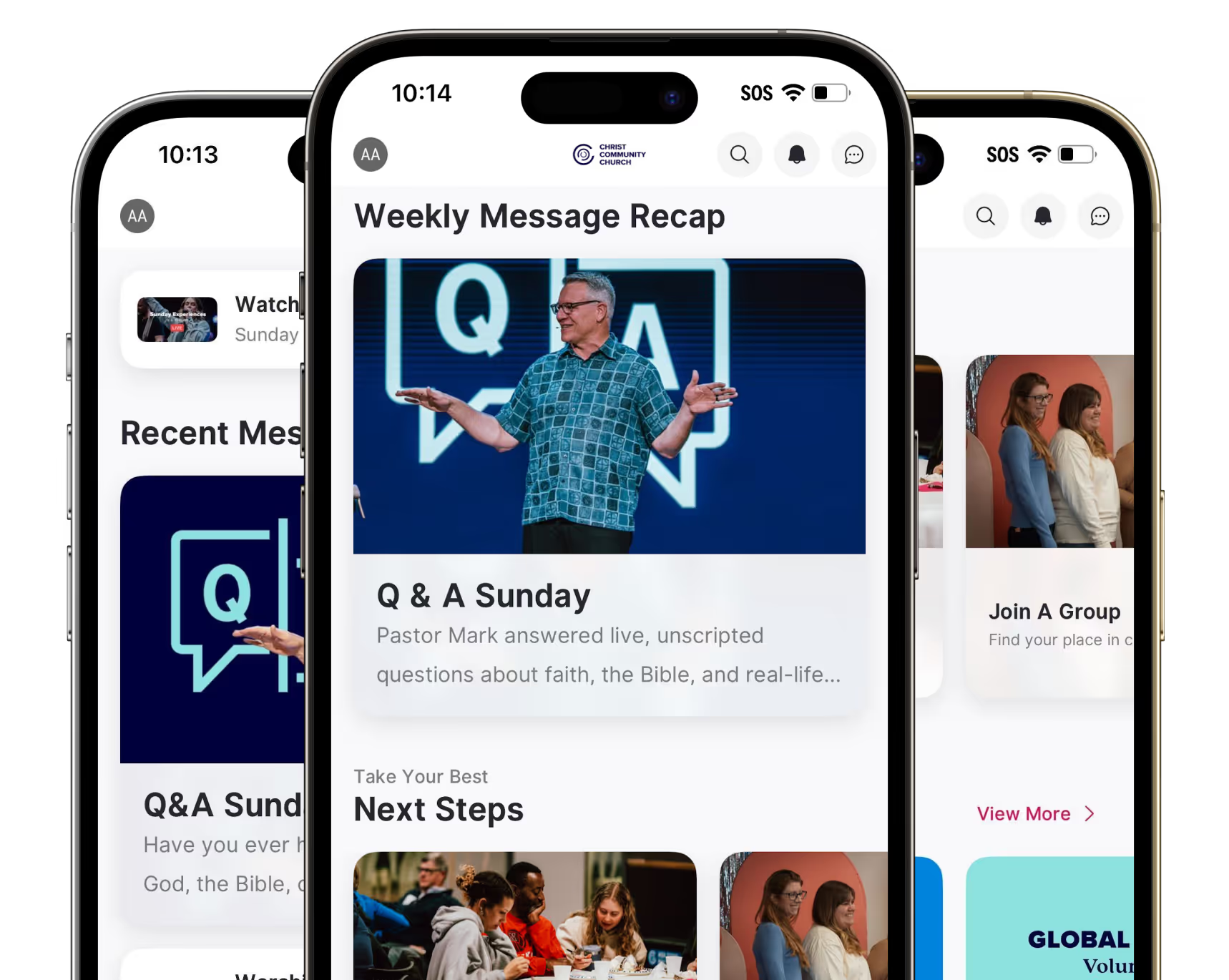
We Do Life Together
Community with other believers helps us follow and become more like Jesus. We want to help you find the type of group that’s best for you. Some people need friendship and bible study partners; others are looking for healing and support during times of trouble.
Read the various group descriptions below and click on the link to "Learn More" about the type of group that fits you best.
Groups FAq
How do I find a group that’s right for me? Stop by the connect area on Sunday to talk with one of our connection specialists. They will ask some questions to help you find a great fit. Alternately, use the group search links above and visit a group to try it on for size!
Groups that thrive include times of worship, the word, work (serving together), and witness (inviting new people in). Most community groups include a combination of fellowship, bible study, prayer, and encouragement. Some follow the sermon series discussion guides; others choose a book or topic of their choosing. Ask the leader of the group for more information.
Many families with kids younger than twelve participate in Deeper, our family discipleship program on Wednesday nights. Sign up here for Deeper. On other nights, some of our at-home groups offer on-site childcare. Ask the leader of the group you are interested in for more information.
Many groups open for new people in January and August, so those months are often the best time to search. During the summer, fewer groups are meeting, so try a short-term group or visit a Summer Mixer.
If you haven’t already taken 101, that’s a great place to start! We ask our group leaders to be members of CCC. After you take 101, talk with one of our Adult Team staff members about the group you envision. We are happy to help!
Discussion Guides
Download Our App
Grow in your faith and build daily habits using our app.
